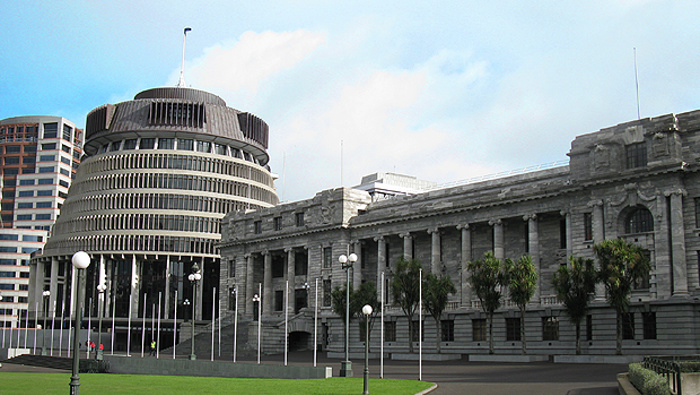Follow
the podcast on


I thought I'd start with the idea, the initiative, if you will, coming out of the think tank, the New Zealand Initiative. I love generally the work that they produce because even though you might not agree with the ideas that they put forward, there's generally a good discussion to be had. You hear the pros, you hear the cons, you think, mmm, okay. This one though, I'm not so sure.
More MPs. Increasing the number of MPs in our parliament from 120 to 170. Oh, I don't think so.
Our parliament may be small compared with other countries with similar populations, but until the New Zealand voting public has a seismic shift in the understanding of civics and civil society, and refocuses itself, if we all have to refocus on responsibilities over rights, then the fewer politicians, the better.
Senior fellow at the Initiative, Nick Clark, says though that we need more politicians because the ones we have are stretched too thinly, they're doing too much work, and that means there's a very real risk of poor legislation being drafted.We have difficulty with select committees in terms of the ability for them to properly scrutinise legislation, and that's partly because the MPs that we do have available are so thinly stretched.
We have MPs that end up on multiple committees. They can't give a good handle on what's going on, as much as they perhaps should. They get inundated with submissions. It's a good idea, I think, to just spread the load a bit more by having some more MPs.
Also, the electorates that we have are very large, both geographically and in population terms, and they're becoming increasingly difficult for MPs to service the rather complex and intense needs of the constituents.
So these extra MPs will be electorate MPs, not list ones.
Some will be, yep, yep, ... we'd be looking at the 50/50 split.
That was Senior Fellow at the New Zealand Initiative Nick Clark talking to Ryan Bridge this morning.
So a few more electorate MPs, but also more list MPs. No, thank you. No, thank you very much at all.
Maybe if every MP who was being paid by you and me, by the public purse, was pulling their weight, you could argue a case that they're overworked. But while a large number take the job very seriously, there have been many instances of MPs across the house calling out others for laziness, for not understanding the job and not doing it. I think when we have MPs who are accountable to an electorate, there is a far greater sense of ownership.
So if you had more electorates, perhaps I could consider the case for it, but certainly, no. No more list MPs.
And in another New Zealand Initiative report, Dr James Kierstead says there's a disconnect between politicians and the people they represent, just as there is in many other democracies around the world. And his report, he says in recent years, governments have enacted a number of policies that were clearly opposed by most Kiwis. Three Waters legislation was forced through despite multiple polls consistently showing that a majority of New Zealanders opposed it. Only a year after Three Strikes legislation was repealed, a poll suggested nearly two-thirds of New Zealanders wanted it to stay on the books, and only 16% of them wanted it repealed. Nonetheless, when Labour came in, they did that anyway. And despite polls showing clear majorities of Kiwis supported the actual wording of the Treaty Principles Bill, it failed to progress beyond its second reading. Dr Kierstead says we need more direct input from citizens as the solution. Again, I'd say no, not until we have a better educated voting population.
If you're listening to the show, I'm assuming you know a little bit about politics, you know a little bit about how parliament works. Some will have a greater understanding than others, but you have an interest in politics. You understand how legislation is enacted. You understand why we have a parliament. You understand the roles of MPs. But there are so many who don't.
They won't look at policies. They'll either vote tribally or they'll vote because somebody looks better than somebody else does. They won't be looking at what policy is going to mean further down the track. They'll just look at how it directly impacts on them, and that's okay if that's their interest. I just don't think that we are intelligent enough to be either represented well, because let's face it, MPs are drawn from us, and we are an imperfect pool of people. And I don't think we know how to keep them accountable. I don't think we know what to expect of them. I don't think we pull them up when they're making grievous errors of judgment when drawing up their list MPs, looking at you, Greens.
Somebody said yesterday that the biggest threats to our society are apathy and ignorance, and I would agree.
Increasing the pool of MPs by another 50? We're going to have to do a lot better than that before I'd even remotely concede to discussing that one.
LISTEN ABOVE
Take your Radio, Podcasts and Music with you









